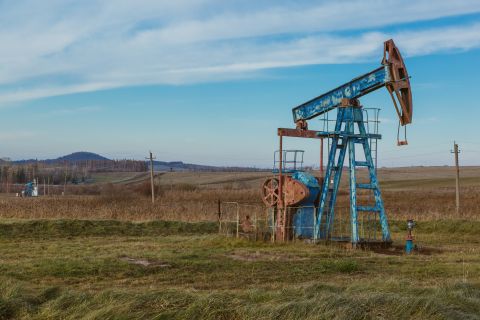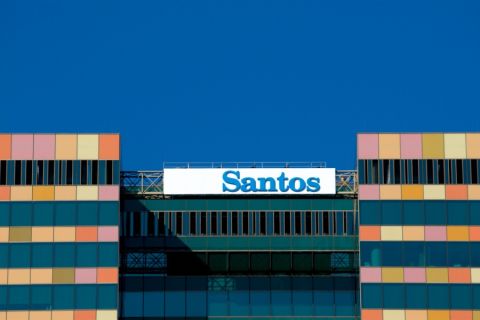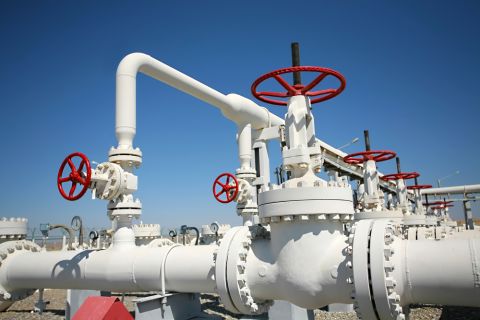The Trump administration said April 2 it plans to lease space in the country's emergency petroleum reserve for an initial 30 million barrels of oil in a bid to help struggling crude drillers, after a previous effort to buy oil for the stockpile was ditched over a lack of funding.
The storage lease plan for the Strategic Petroleum Reserve, or SPR, will involve an exchange of up to 22.8 million barrels of sweet crude, which is what most onshore drillers produce, and up to 7.2 million barrels of sour crude. All of the oil will be produced domestically, the Department of Energy (DOE) said.
The new plan could help the U.S. deal with a growing glut of crude oil that risks overwhelming commercial storage tanks and sending world energy prices deeper into a tailspin as the coronavirus pandemic slashes demand for fuel.
The DOE said it intends to eventually lease storage for an additional 47 million barrels, which would fill the SPR to capacity.
As oil prices tumbled 55% in March on the twin threats of crumbling demand and a race for market share between Russia and Saudi Arabia, two of the world's top oil producers, U.S. President Donald Trump directed the DOE to fill the reserve "to the top." But the DOE ditched that plan after Congress failed to allocate about $3 billion for the purchase in last month's big stimulus bill.
The DOE said it expected the first crude deliveries for the lease to the SPR, which holds oil in a series of salt caverns on the Texas and Louisiana coasts, in late April to early May, and that it will be able to receive up to 685,000 bbl/d.
U.S. Secretary of Energy Dan Brouillette said DOE continues to work with Congress to make funding available for an SPR purchase. "However, we must move with a sense of urgency to support an industry that underpins the U.S. economy and supports our national security," he said.
Dan Eberhart, CEO of Canary LLC, a Colorado-based oilfield drilling and production services company, said a lease was helpful, but a purchase would be better.
"Ultimately it would be better for DOE just to buy the oil. Prices are low. Grab it now and sell it later when oil rebounds," he said.
Companies storing oil in the SPR will eventually have to take the oil back, less a premium for the rental.
The nonpartisan Congressional Research Service said in a report late last year that the SPR is more suited for long-term oil storage than short-term leases.
"Oil is drawn from the SPR storage caverns by injecting brine into the caverns," it said. "Frequent brine injection and withdrawal could result in accelerated structural deterioration of the caverns."
Recommended Reading
Brett: Oil M&A Outlook is Strong, Even With Bifurcation in Valuations
2024-04-18 - Valuations across major basins are experiencing a very divergent bifurcation as value rushes back toward high-quality undeveloped properties.
Marketed: BKV Chelsea 214 Well Package in Marcellus Shale
2024-04-18 - BKV Chelsea has retained EnergyNet for the sale of a 214 non-operated well package in Bradford, Lycoming, Sullivan, Susquehanna, Tioga and Wyoming counties, Pennsylvania.
Defeating the ‘Four Horseman’ of Flow Assurance
2024-04-18 - Service companies combine processes and techniques to mitigate the impact of paraffin, asphaltenes, hydrates and scale on production — and keep the cash flowing.
Santos’ Pikka Phase 1 in Alaska to Deliver First Oil by 2026
2024-04-18 - Australia's Santos expects first oil to flow from the 80,000 bbl/d Pikka Phase 1 project in Alaska by 2026, diversifying Santos' portfolio and reducing geographic concentration risk.
Ozark Gas Transmission’s Pipeline Supply Access Project in Service
2024-04-18 - Black Bear Transmission’s subsidiary Ozark Gas Transmission placed its supply access project in service on April 8, providing increased gas supply reliability for Ozark shippers.




